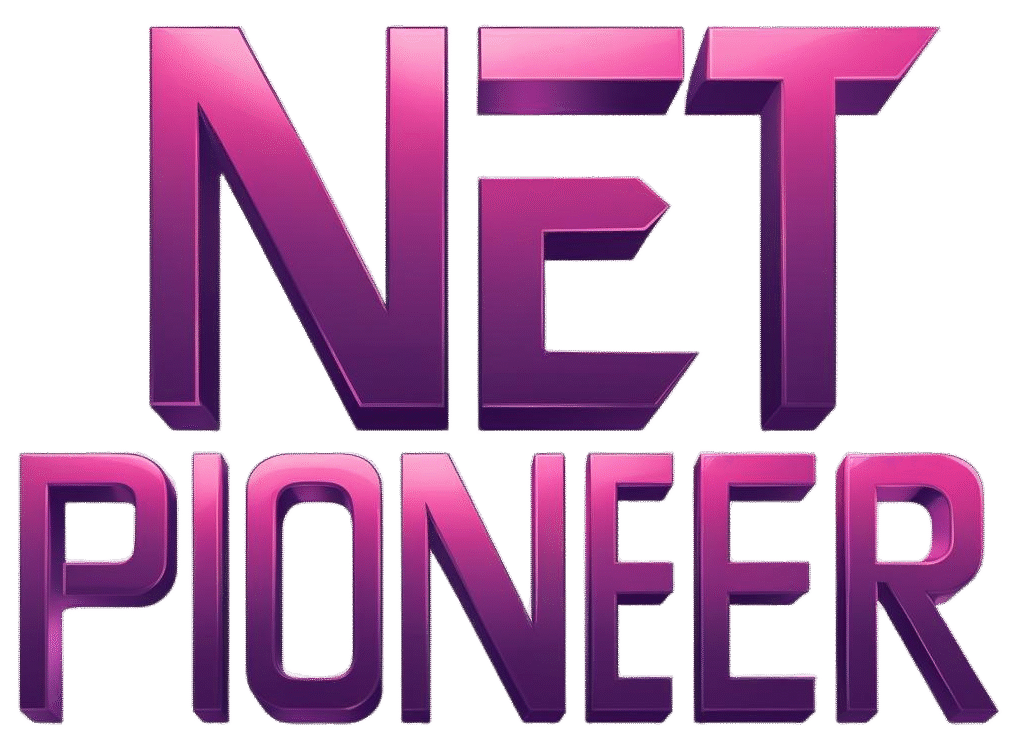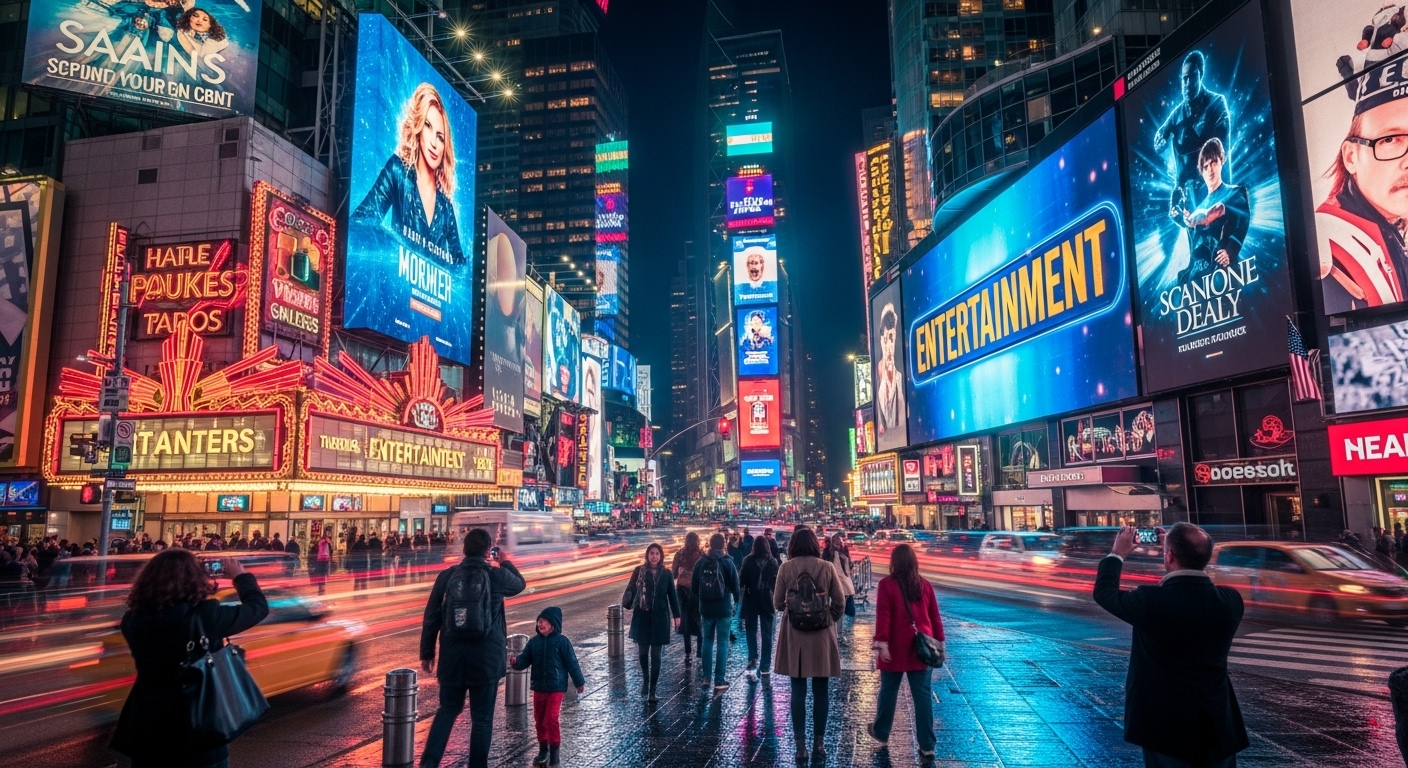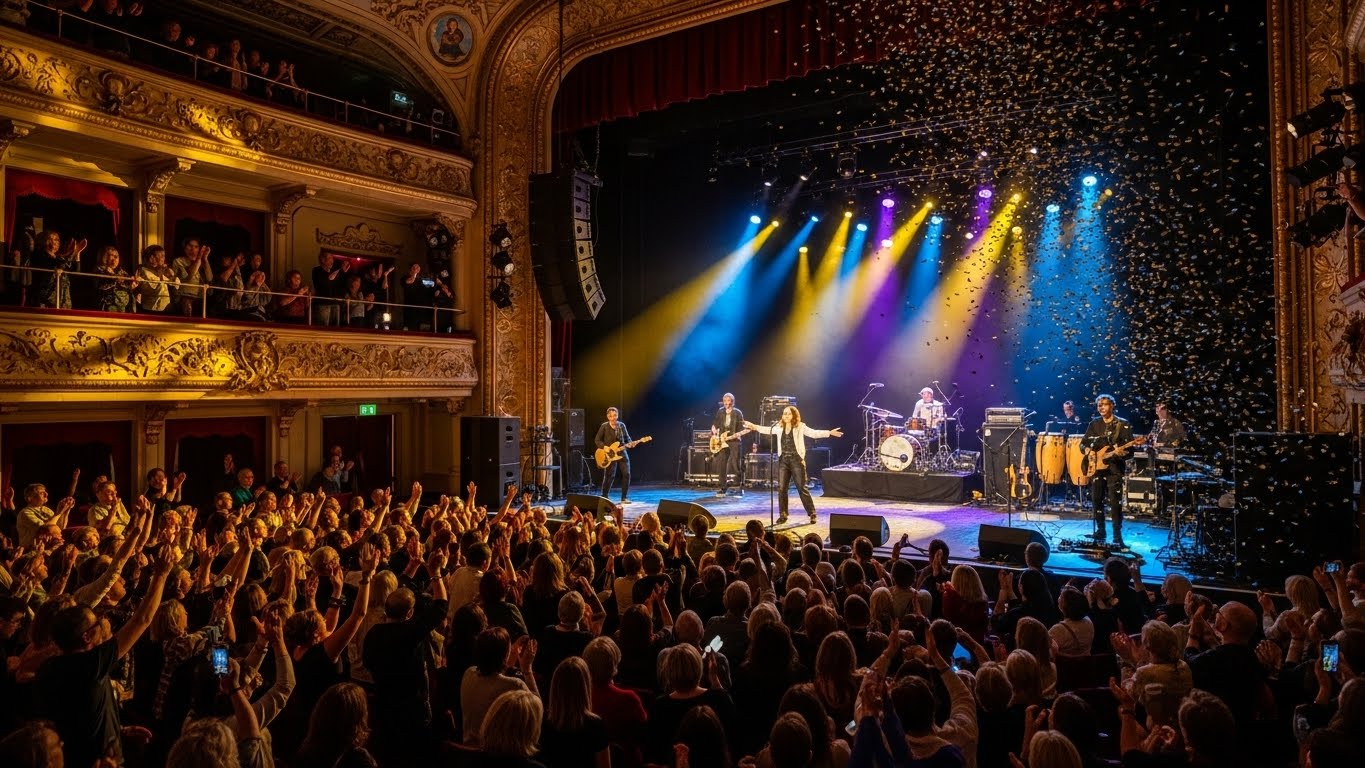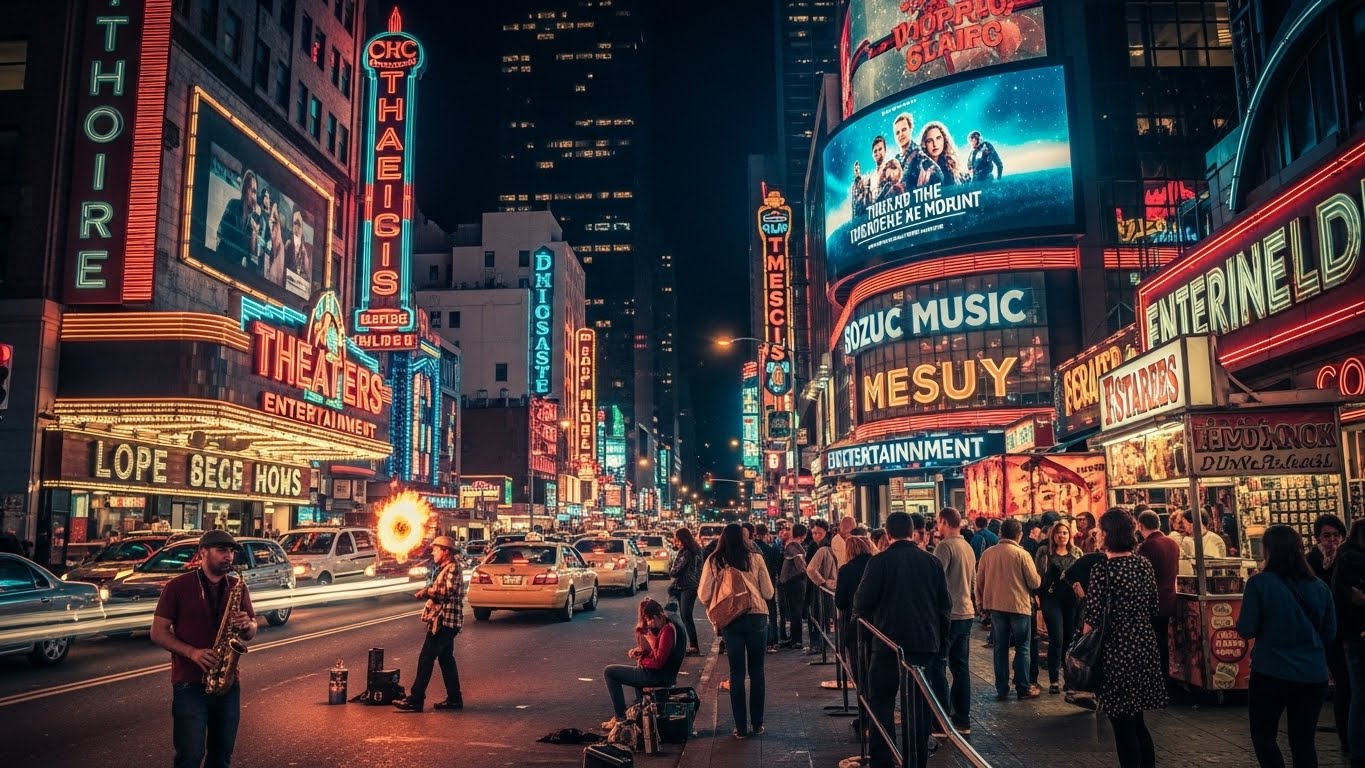Entertainment has always been at the center of human culture. From the earliest forms of storytelling around campfires to the massive global industries of cinema, music, sports, and digital streaming today, entertainment is what brings people together, inspires emotions, and allows a temporary escape from everyday life. It is more than just fun; it is a cultural force that influences society, shapes values, and defines generations. In this blog, we will take a deep dive into the different aspects of entertainment, its history, modern transformations, and how it continues to impact our lives.
The Origins of Entertainment
When we think of entertainment today, we often picture movies, concerts, or video games. But entertainment is as old as humanity itself. Ancient civilizations used various forms of amusement to bring joy, celebrate victories, and even teach moral lessons. Storytelling was one of the earliest forms of entertainment, where elders and poets narrated tales of heroes, gods, and life lessons. These stories were passed from generation to generation and helped communities preserve culture and identity.
Music and dance also played a crucial role in early societies. Drums, flutes, and chants were used in rituals and festivals to create a sense of unity among tribes. Similarly, sports and games like wrestling, running, and board games provided amusement and a healthy spirit of competition. The Romans built grand arenas for gladiator battles, while the Greeks held the Olympic Games, both blending entertainment with cultural pride.
The Golden Age of Theater
As civilizations advanced, entertainment took on more structured forms. One of the most important milestones was the rise of theater. Ancient Greece pioneered theatrical arts, with tragedies and comedies written by playwrights like Sophocles, Aeschylus, and Aristophanes. These plays not only entertained but also provoked thought, challenged beliefs, and addressed political and social issues of the time.
Later, during the Elizabethan era, theater reached new heights with the works of William Shakespeare. His plays are still considered masterpieces of storytelling and performance, capturing the complexity of human emotions and societal struggles. Theaters became centers of cultural life, where people from all walks of life gathered to enjoy drama, poetry, and performance.
Literature as Entertainment
Books have long been one of the most powerful forms of entertainment. From epic poems like Homer’s Iliad to modern novels that dominate bestseller lists, literature has offered people an opportunity to explore new worlds, dive into emotions, and reflect on life. Fiction provides escapism, while non-fiction educates and inspires. Storytelling through literature has shaped human imagination and continues to evolve in the age of e-books and audiobooks.
The Birth of Cinema
Perhaps no industry has defined entertainment in the modern era as much as cinema. The late 19th and early 20th centuries saw the invention of motion pictures, which quickly evolved from simple black-and-white silent films to colorful, sound-infused blockbusters. Filmmakers like Charlie Chaplin became legends for their ability to make audiences laugh and cry without saying a single word.
Hollywood emerged as the epicenter of global cinema, producing classics that defined generations. Over the decades, films became not just a form of entertainment but also a reflection of society’s struggles, triumphs, and dreams. Genres like romance, horror, science fiction, and action offered variety for every type of viewer. Today, cinema continues to evolve with advanced technology, high-quality visual effects, and diverse storytelling.
Music as the Universal Language
Music has always been called the universal language, and for good reason. It transcends boundaries, cultures, and even language barriers. From classical compositions by Mozart and Beethoven to the rise of jazz, rock, pop, hip-hop, and electronic music, every era has its own musical identity.
The 20th century marked the golden age of recorded music. Radio, vinyl records, and later CDs made music accessible to the masses. Iconic artists such as Elvis Presley, The Beatles, Michael Jackson, and Madonna transformed not only music but also fashion, culture, and identity. Today, streaming platforms and global tours allow musicians to reach audiences in every corner of the world instantly.
Television and the Home Entertainment Revolution
The invention of television changed the entertainment landscape forever. For the first time, families could gather in their living rooms and watch news, shows, and films without leaving their homes. Sitcoms, dramas, and talk shows became cultural phenomena. Characters from TV shows became household names, and jingles from commercials became etched in memory.
Television also played a significant role in bringing the world closer. Live broadcasts of events like the moon landing, global sporting events, and award shows created shared experiences for millions. With the rise of cable TV in the late 20th century, viewers had access to hundreds of channels, from news to sports to specialized entertainment.
The Digital Era and Streaming Services
The 21st century has redefined entertainment more than any other period in history. With the rise of the internet, streaming services, and social media, people now consume entertainment on-demand. Platforms offering movies, TV shows, and original content have replaced traditional cable for many households.
Streaming allows personalized entertainment experiences. Viewers can binge-watch entire seasons of shows, explore international films, and discover new genres. The competition among streaming giants has led to a surge in creative, high-quality content. In many ways, the digital age has given audiences more control than ever over what they watch, listen to, and enjoy.
Video Games as Mainstream Entertainment
Once considered a niche hobby, video games are now one of the biggest sectors of entertainment. What started with simple pixelated games in the 1970s has grown into a multi-billion-dollar industry. Games now feature advanced graphics, immersive storylines, and online multiplayer modes that connect millions of players globally.
Esports, or competitive gaming, has also risen in popularity, with professional players, tournaments, and massive fan followings. Video games are no longer just for children; they are enjoyed by people of all ages and have even been recognized for their educational and social value.
Sports as Spectacle and Passion
Sports have always been a universal form of entertainment. From football and cricket to basketball and tennis, sports bring people together and ignite passion like few other forms of amusement. They provide not only physical thrills but also emotional highs and lows, as fans cheer for their favorite teams and athletes.
Major sporting events like the Olympics, World Cup, and Super Bowl are watched by billions around the globe, making them some of the biggest entertainment spectacles in history. Sports are also deeply tied to cultural identity and pride, as victories and defeats often symbolize more than just games—they reflect national spirit.
Celebrity Culture and the Power of Stardom
Entertainment is not only about the art itself but also about the personalities behind it. Celebrities—actors, musicians, athletes, and influencers—have become central figures in the industry. Their lives, styles, and opinions are followed passionately by millions. The rise of paparazzi, fan clubs, and social media has only intensified this fascination.
Celebrity culture shapes fashion, beauty standards, and even political opinions. While it offers fans inspiration and escapism, it also raises questions about privacy, influence, and responsibility. Still, the power of stardom remains one of the most influential forces in entertainment today.
The Role of Technology in Entertainment
Technology has always driven changes in entertainment. From the invention of the printing press to the creation of smartphones, every new development has transformed how people consume amusement. Virtual reality, augmented reality, and artificial intelligence are now pushing entertainment into new frontiers.
Concerts can be experienced through VR headsets, video games are becoming hyper-realistic, and AI is even being used to compose music and write scripts. These innovations raise exciting possibilities but also spark debates about creativity, originality, and the role of humans in art.
Entertainment as a Reflection of Society
One of the most fascinating aspects of entertainment is how it reflects society. Films, music, literature, and television often capture the values, struggles, and dreams of their time. For example, movies during wartime often emphasize patriotism, while modern shows might address themes of diversity, mental health, and identity.
Entertainment not only mirrors culture but also influences it. Popular shows and songs can shift public opinion, challenge norms, and start conversations about important issues. This dual role makes entertainment one of the most powerful forces in human society.
The Business of Entertainment
Beyond the art and fun, entertainment is also big business. The industry generates billions of dollars globally, employing millions of people in fields ranging from acting and directing to marketing and production. Hollywood, Bollywood, the music industry, gaming companies, and sports leagues are major economic powerhouses.
Merchandising, advertising, and endorsements further extend the reach of entertainment. Fans often spend on tickets, collectibles, clothing, and streaming subscriptions, fueling a vast and complex economy. The success of entertainment businesses also contributes significantly to tourism, hospitality, and local economies.
Challenges in Modern Entertainment
While entertainment has never been more accessible, it also faces challenges. The industry struggles with issues like piracy, content oversaturation, and concerns about mental health in a binge-watching, always-connected culture. Social media has made celebrities more accessible but also exposed them to intense scrutiny and pressure.
Censorship, cultural differences, and ethical debates about representation and inclusivity also continue to shape the entertainment landscape. Navigating these challenges requires balancing creativity with responsibility.
The Future of Entertainment
Looking ahead, entertainment will only continue to evolve. Virtual concerts, AI-generated films, interactive shows, and immersive gaming are likely to become more mainstream. Globalization means that audiences will have even greater access to diverse cultures and content from around the world.
However, despite all the technological advances, the core of entertainment will remain the same: the desire to connect, to feel, and to escape into stories, music, and experiences. Whether through a campfire tale thousands of years ago or a virtual reality experience tomorrow, entertainment will always be an essential part of human life.
Conclusion
Entertainment is much more than a pastime; it is a reflection of who we are as people. It unites us across cultures, generations, and borders. From ancient rituals to modern blockbusters, from poetry to esports, entertainment continues to shape our emotions, values, and collective experiences. Its evolution is a story of human creativity, innovation, and the universal need for joy and connection. As we move into the future, one thing is certain: entertainment will remain a defining force in our lives, always adapting, always inspiring, and always bringing people together.



